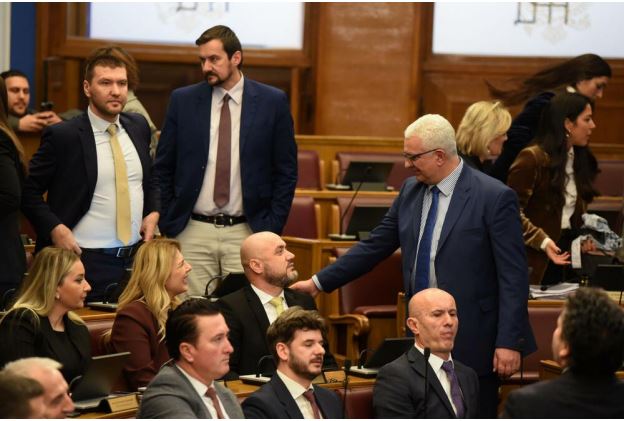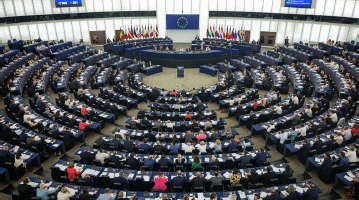The cooperation agreement between the Government of Montenegro and the United Arab Emirates (UAE) could come with huge financial consequences for the country, especially since the state will be responsible for funding the infrastructure for upcoming projects and covering expropriation costs. The actual price tag remains unknown and will only be clear once the UAE government and its investor decide where and what to build.
This uncertainty is exactly why the Ministry of Finance is calling for a supplemental fiscal analysis and a revision of the country’s fiscal strategy, once the financial obligations become clearer. This is all detailed in the Ministry’s opinion and in the Regulatory Impact Assessment attached to the proposed law that would confirm this agreement both of which were published on the Parliament of Montenegro’s website.
By passing this law, Parliament would essentially give the Government full authority to sign future investment deals with the UAE, without any obligation to return to Parliament for approval, even if those agreements come with large financial commitments.
MPs are being asked to vote on something without knowing the exact cost or terms. The agreement itself doesn’t place any restrictions on how those deals will be structured so, for example, the Government could lease state land for 99 years, allow the investor to gain ownership of properties built on that land, or set rental prices and conditions without any checks. Since the law marks these UAE investments as being of “public interest,” the investors would also qualify for further benefits through Montenegro’s Strategic Investments Law, which is still being developed.
If this law is passed, it will take on the status of a “lex specialis” meaning that in case of legal conflict, this law would override any other Montenegrin law. And yet, the financial implications remain vague. The Ministry of Finance openly admits that no fiscal impact assessment has been done yet, simply because there’s no way to calculate costs until the specific prject sites are chosen.
What’s more, the Ministry clearly states that these expenses are not included in the 2025 national budget, nor are they part of the current medium-term fiscal strategy covering 2024 to 2027. Any obligations that arise from these deals will have to be added later, once contracts are signed and investment locations are known. This means new budget amendments, new fiscal planning, and a whole lot of uncertainty.
Additionally, the Ministry highlights that Montenegro is required to notify the European Commission about this agreement something that’s critical, considering the country’s EU integration process. And while the agreement itself doesn’t mention specific locations, it’s already widely known that UAE investor Mohamed Alabbar who’s behind the Belgrade Waterfront project has been in direct talks with Prime Minister Milojko Spajić.
Alabbar reportedly presented plans to build an entirely new city along Velika Plaža (Long Beach), covering around 20 million square meters from Port Milena to the Bojana River. Spajić later shared this plan with the Ulcinj municipal assembly, explaining that Alabbar wants to lease the entire area for 99 years and invest up to €35 billion.
The plan reportedly includes the construction of ten luxury hotels, several marinas with internal canals, 50 restaurants, over 200 shops, and three large residential zones with thousands of apartments, villas, and housing units. The infrastructure alone is estimated to cost around €20 billion. But again, none of this has gone through public debate or detailed financial vetting.
Parliament is being asked to sign off on a law without knowing the scope of what it’s approving, and that’s a serious issue for transparency, accountability, and long-term financial planning. From a personal standpoint, this whole situation raises more red flags than excitement. Sure, Montenegro could benefit from serious investment, especially if it boosts tourism, jobs, and infrastructure. But at what cost and with what level of control or oversight?
Granting massive legal and financial freedom to the Government and a private investor without Parliamentary checks or public clarity feels risky. This shouldn’t be about fast-tracking flashy projects or headline numbers. It should be about long-term benefits for the country and its citizens, and that requires transparency every step of the way.
Written by our correspondent A.A.



